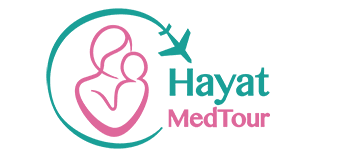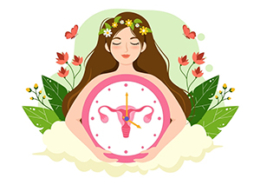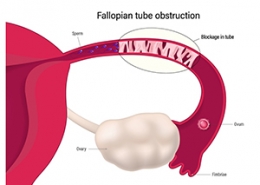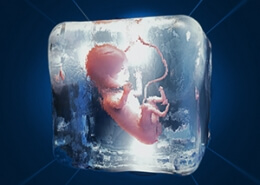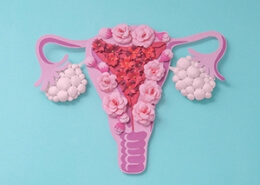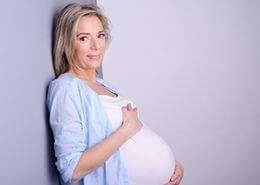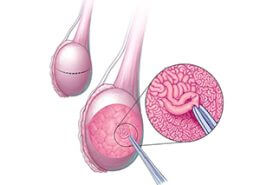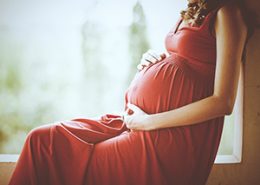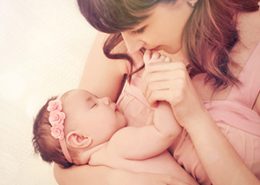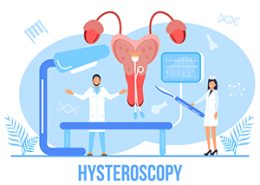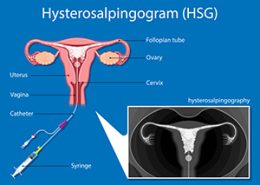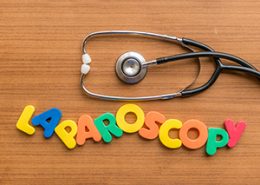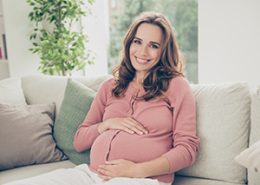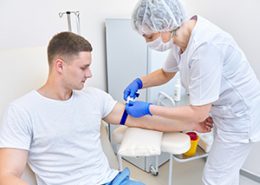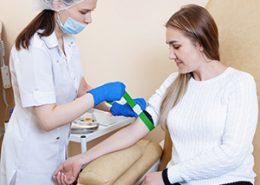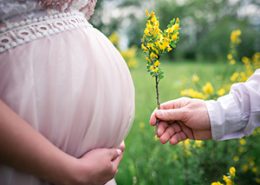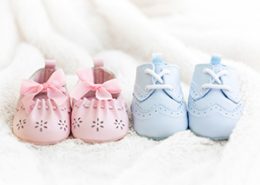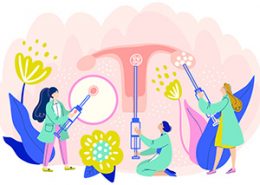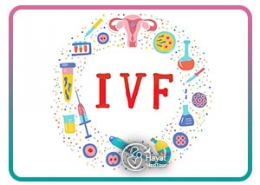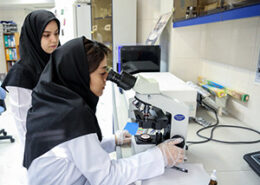Is It Possible to Get Pregnant After Menopause?
As you enter menopause, you may wonder if you can still get pregnant. The answer to this question can help you to create a happy family and plan your life. Menopause usually occurs between the ages of 45 and 58. At this stage of life, the level of hormones changes in such a way that the ovaries no longer release eggs and the ovulation process stops. When ovulation stops completely, there is no possibility of natural pregnancy.
But you should not forget that menopause does not happen overnight. Early symptoms of menopause, such as hot flashes and irregular periods, indicate a decrease in your fertility, but it does not mean that you can no longer get pregnant. Complete menopause occurs when your monthly periods have stopped for at least a year. At this time, there is no possibility of natural pregnancy. But the good news is that it is still possible to get pregnant using assisted reproductive methods such as IVF and ICSI. If the quality of your eggs is not suitable for IVF, IVF with donor eggs is the best way to get pregnant in menopause.

What is menopause?
Menopause is one of the stages of a woman’s life that usually starts from 45 to 58 years old. Menopause occurs when a woman’s menstrual periods have stopped for at least 12 months.
In other words, menopause means the complete cessation of the ovulation process. Menopause is a slow process, and it may take months or years for periods to stop completely. Menopause usually manifests itself with symptoms such as hot flashes, night sweats, vaginal dryness, low libido, mood changes, and menstrual irregularity, and it becomes more intense over time.
When does menopause happen?
Women are born with about one to two million immature eggs. These eggs remain in the ovaries unchanged until puberty. During puberty, due to hormonal changes, every month one or more mature eggs are released from the ovaries and ready for fertilization. Over time, the number of eggs gradually decreases, so that at the age of 37, there are about 26,000 eggs left. After age 37, your ovarian reserve declines at a faster rate. At the age of 45, with a change in the menstrual cycle, the menopause process begins.
The age of menopause varies among people. But it usually happens between the ages of 45 and 58. At the age of menopause, due to the failure of the ovaries, the level of estrogen and progesterone hormones, which are responsible for releasing eggs from the ovaries, decreases drastically. These hormonal changes disrupt the ovulation process and cause irregular menstrual cycles. Finally, after a few months (or a few years) from the onset of the initial symptoms of menopause, the monthly period stops completely.
Menopause may occur in some people earlier than the age of 40, which is called early menopause. Premature menopause occurs in one percent of women under 40 years of age. Premature menopause can occur due to genetic reasons, premature failure of the ovaries, infectious diseases, hypothyroidism, chemotherapy, some surgeries in the pelvic area, taking some drugs, inappropriate lifestyle, etc.
How does menopause happen?
Menopause is an important change in women’s bodies that marks the end of the reproductive period. This change does not happen overnight, and it can take months or years for the ovulation process to stop completely. Therefore, menopause can be divided into three stages: pre-menopause, menopause, and post-menopause:
-
Pre-menopausal periods
The premenopausal phase usually starts about 8-10 years before menopause. This stage appears irregularly in monthly periods. The premenopausal phase begins for some women in their 40s and others in their late 30s. At this stage, the production of estrogen and progesterone decreases gradually, so that in the year leading to menopause, the level of estrogen drops drastically until menstruation stops. Usually, women experience night sweats, hot flashes, forgetfulness, mood changes, joint stiffness, weight gain, and loss of libido during the perimenopause stage.
-
Menopause
During menopause, monthly periods stop for at least one year, and no more eggs are released from the ovaries. This stage usually occurs between the ages of 45 and 50, and a woman entering this stage can no longer conceive naturally.
-
After menopause
at this stage, some symptoms of menopause, especially nighttime hot flashes, gradually decrease. However, decreased estrogen levels make women more vulnerable to problems such as osteoporosis, heart disease, and obesity. Some medications and lifestyle changes can reduce the risk of these problems in postmenopausal women.
Is it possible to get pregnant during menopause?
During menopause, pregnancy is difficult due to hormonal changes. However, as long as the uterus is healthy, it is possible to get pregnant using assisted reproduction methods. In the following, we will examine the possibility of pregnancy in different stages of menopause:
Pregnancy during pre-menopause
One of the most important and influential factors in women’s fertility is the number and quality of eggs. With increasing age and the onset of menopause, the number and quality of eggs gradually decrease. In addition, monthly periods lose their regularity and the ovulation process is disrupted. Therefore, pregnancy during this period is difficult. But despite the irregular monthly periods in pre-menopause, ovulation still occurs. Therefore, there is still a possibility of releasing a healthy egg and pregnancy.

During the premenopausal period, due to hormonal changes, the quality of eggs decreases. Therefore, women who intend to get pregnant during pre-menopause should pay more attention to lifestyle modification and ways to increase egg quality than other women. In addition, performing stem cell therapy and injecting menstrual blood stem cells into the ovaries can help to mature and produce more healthy eggs during this period.
Ovulation disorder reduces the chance of natural pregnancy during the premenopausal period. Therefore, the use of assisted reproductive methods such as IVF and ICSI by stimulating ovulation and transferring high-quality embryos can increase the chances of pregnancy during pre-menopause.
Pregnancy during post-menopause
After menopause and the complete cessation of monthly periods, there is no possibility of regular ovulation and pregnancy. However, the uterus and other reproductive organs are still healthy and can carry out the task of pregnancy. Therefore, using a donor egg is the best method for pregnancy in the post-menopausal period.
In the egg donation method, the eggs of young women, who volunteer to donate eggs, are used for fertilization. After the eggs are retrieved from the donor’s ovary, they are fertilized in the laboratory with the sperm of the egg recipient’s spouse to form an embryo. Then, the embryos are transferred to the uterus of the egg recipient to continue their development.
Can you get pregnant after early menopause?
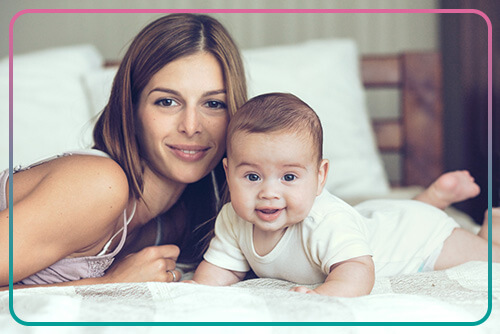
Early or premature menopause affects the functioning of the ovaries and disrupts the secretion of sex hormones. Premature ovarian failure causes disorders in the maturation of eggs and irregularity or cessation of ovulation. Therefore, women with early or premature menopause face infertility problems.
Hormone therapy is the first step to help restore fertility and relieve early menopause symptoms. Hormone therapy helps the maturation of eggs, the continuation of ovulation, and the regularization of monthly periods by improving the complications caused by the reduction of estrogen. But in the case of advanced menopause, this strategy does not have much effect on increasing women’s fertility.
In many cases, early menopause reduces a woman’s fertility to such an extent that it is no longer possible to develop mature eggs. In such a situation, the best way to get pregnant is to use IVF with a donated egg. Learn more about IVF with donor eggs: How does IVF with donor eggs work?
If you are going through menopause or have experienced early menopause and you are planning to have a child, contact us for more information about pregnancy during menopause.
